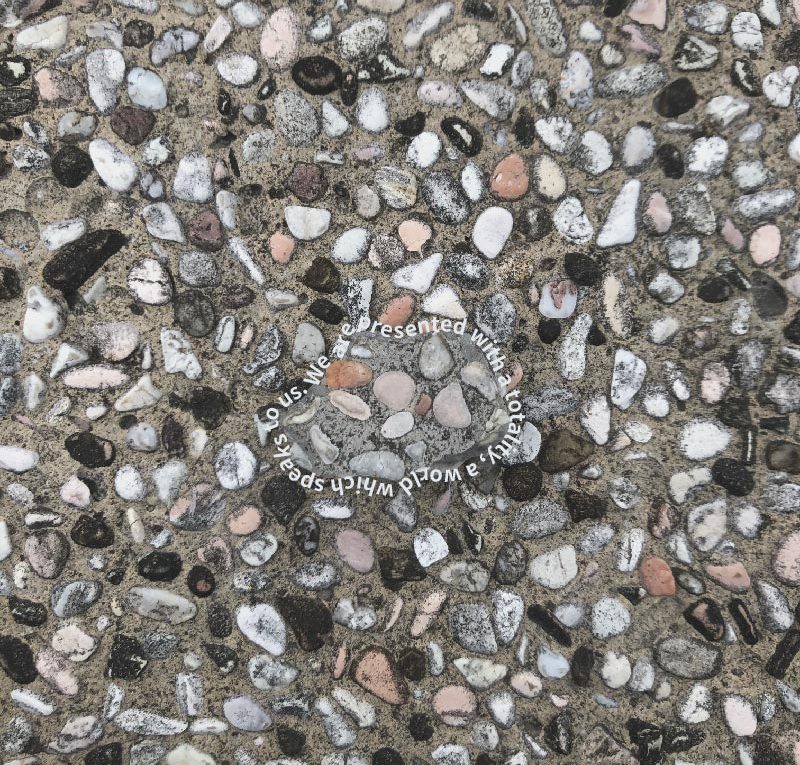Iris Chun-Tzu Chang and Liao Yu-Hsuan: We are presented with a totality, a world which speaks to us
A total of 2 episodes
We use the personal experience of reading excerpts from each other’s text as a medium, without knowing the source of the other’s files, to translate the reading experience of Taiwan in a partial-lockdown state during the pandemic through sound. Each episode is a two-part structure of mysteries, mixing and collaging the sounds of field audio recordings, mimicry, music and human narrative, retaining some ambient noise, a sense of roughness and occasional over-approximation, to recreate an imaginary sound born out of the pandemic from virtual to physical and back again.
Episode 1
Stones, atoms, cosmic rays, rain, seawater erosion holes, sand and island. Languages erasing languages, rooms translating rooms. Enigmas (green soybean), riddles (magnets)
Episode 2
Stones, the witch in the kitchen, copper, space, boiling, particles, bamboo. Rhythms produced rhythms, time sticking to time. Enigmas (green soybean), riddles (magnets)
Producers :
Iris Chun-Tzu Chang
Inter-disciplinary arts practitioner. Studied industrial design and architecture at the National Cheng Kung University. Graduated with a Master of Art in Sound Arts from the University of the Arts London. Like sound as clay, Iris crafts her work through drawing, poetry, installation, field recording and improvised performance. Exploring embodied perception at the thresholds between the tangible/intangible, audible/inaudible, conscious/subconscious, her research interweaves art and science focusing on the self-propagation of memory and the co-existence between humans and non-humans. In her art practices she seeks to grasp the fragility of sonic memory as a self-therapeutic process through which tension and identity is formed, de-formed and re-formed.
Liao Yu-Hsuan
Presently working as a sound artist and a research assistant at the Institute for Ethnic Studies, Academia Sinica. Graduated from the National Taiwan University with a Master degree in Musicology, and studied history at the National Cheng Kung University. Main interests of research: Ecological musicology in Taiwan, sound culture studies and STS, soundscape poetry, multi-species ethnography of sound and other related issues. Current direction focuses on the contact zones between nature, technology, history and sound art, exploring the ways in which people shape the tactile structures and sensory processes that flow across species and systems in a multiplicity of contemporary contexts and modern sound reproductions.

